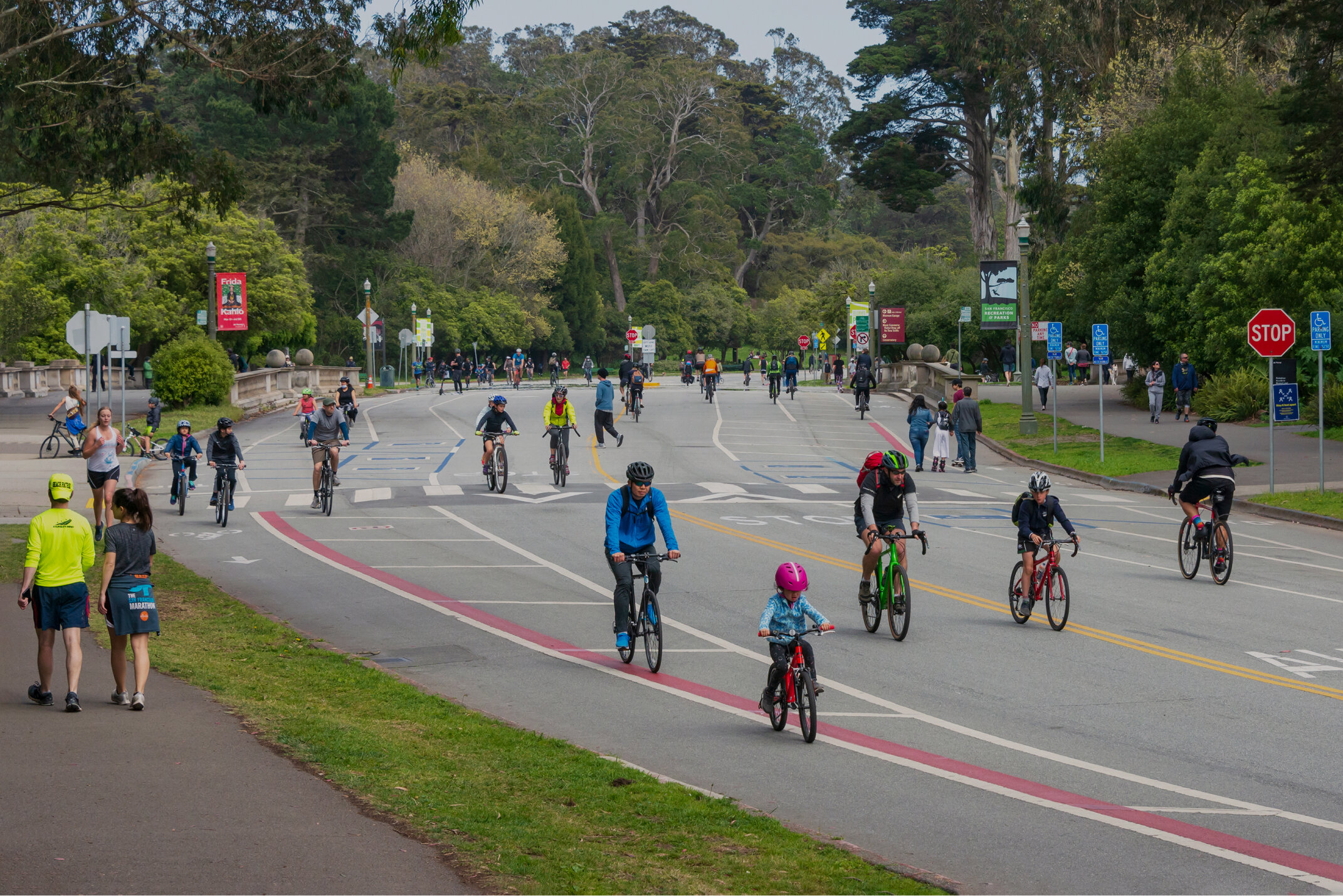
Reform the Music Concourse Garage and Preserve Kid Safe JFK
The Concourse Garage was approved by voters and built to enhance access to Golden Gate Park and create a pedestrian oasis in the center of the park. Under the governance of the Music Concourse Community Partnership and its board of museum insiders, the garage has been beset by financial scandal, operational failure, and a lack of transparency.
With reform and new leadership, the garage can fulfill its original promise by increasing ADA parking, enhancing affordability for low-income visitors, and providing museum employees with safe and affordable access. Addressing these legitimate concerns through garage reform is a win-win, and would enable our city to fully preserve 24/7/365 Kid Safe JFK for the more than 7 million people of all ages and abilities who have enjoyed this unique promenade since April 2020.
The will of the voters expressed in Prop J has never been properly fulfilled
1998’s Proposition J mandated the creation of a “pedestrian oasis” in the heart of Golden Gate Park, but that promise never came to pass—until Kid Safe JFK.
Prop J stipulated that the city “reduce the impact of automobiles that detract from the natural, scenic and environmental attributes of the Park” but JFK became a fossil fuel commuter cut-through
Prop J required that any garage profits (after reserves) be invested in “the operation, maintenance, improvement or enhancement of Golden Gate Park” but none materialized.
The Garage is controlled by the Museums
6 of 7 garage board members are museum insiders: museum executives and trustees, and the CEO of Swinerton, who built the garage and is a vendor to the DeYoung.
The garage board could enact solutions like more ADA parking, lower parking rates, and affordable parking for employees, but for 15+ years they have chosen not to.
The museums pretend they have no influence over the garage, which is disingenuous. The DeYoung stated: “We’ve also been advocating for lowered rates in the garage but to little effect” dodging the heavy overlap between the garage board and museum insiders.
The Garage is poorly governed
Embarrassing Scandal: The garage lost over $4M to embezzlement by their CFO, all under the board’s watch. This put the garage in a deep financial hole with more debt, unpaid rent and taxes owed to the city, and unusual loans owed to the museums.
Failure to right the ship: This embezzlement scandal was 13 years ago, yet the garage still remains on thin financial footing, even prior to the pandemic. The garage has breached its debt covenants multiple times, demonstrating that the current board can’t effectively oversee this important public resource. It’s time for new governance and new leadership.
The Garage is poorly operated
The garage is overpriced: The music concourse garage is nearly as expensive as the SFMOMA garage ($33 daily maximum vs. $35), an ill-advised pricing approach given that GGP has thousands of free parking spots and downtown has close to zero.
The garage is underutilized: According to their own IRS filings and pricing history, on average the garage was 28% full in the 5 years prior to the pandemic. In its best year (2010) the garage had average utilization of 39%. On weekdays, according to a 2019 Rec & Park study, the garage is less than 50% full at peak hours.
The Garage owes over $3.4M to the Museums and Swinerton, the garage builder, but hasn’t been fully transparent in public IRS filings
The garage owes the museums over $2.5M while at the same time being governed by museum insiders. The loan accrues interest but the garage has not made any payments (principal or interest) in well over a decade, which is not standard practice.
In public IRS filings the garage board attests whether they also served as trustees or former trustees of an entity doing business with the garage, and for 12 years in a row the garage trustees have answered “No” which isn’t correct (see Appendix A).
The garage labels the $2.5M debt owed to the museums as “notes payable to unrelated third parties,” but the museums aren’t “unrelated” if their own insiders govern the garage.
In 2010 the garage board assured the Board of Supervisors that the debt to the museums would be repaid between 2017-21, but this never happened.
The garage and the DeYoung shared the same auditor and preparer until 2015-16, which is not best practice for organizations that are entangled in potential conflicts of interest.
The garage also owes Swinerton Builders $870K, and Swinerton’s CEO Eric Foster sits on the garage’s board. This potential conflict of interest also wasn’t disclosed in IRS filings.
The museum insiders have governed the garage as a subsidiary of the museums rather than a public resource to enhance Golden Gate Park and serve the public good. In order for the garage to fulfill its potential, new leadership and new governance is required.
The Garage can finally fulfill the promise of a “Pedestrian Oasis” and save Kid Safe JFK
ADA parking: Double the number of ADA spots in the Garage from 33 to 66 and offer free parking with an ADA placard, so that visitors with disabilities have the best access available.
Lower rates for low-income visitors: Offer free/discounted parking for low-income visitors who need to drive or choose to drive because of a lack of good transportation alternatives.
Parking for Museum employees: The museums should launch a transportation benefit so that their employees can park affordably in the underutilized garage. Many employers contend with employee parking challenges in San Francisco and receive no special treatment. The museums have over a half a billion dollars in endowments and investments and collectively receive over $25M in funding from the city—they can afford to help.

